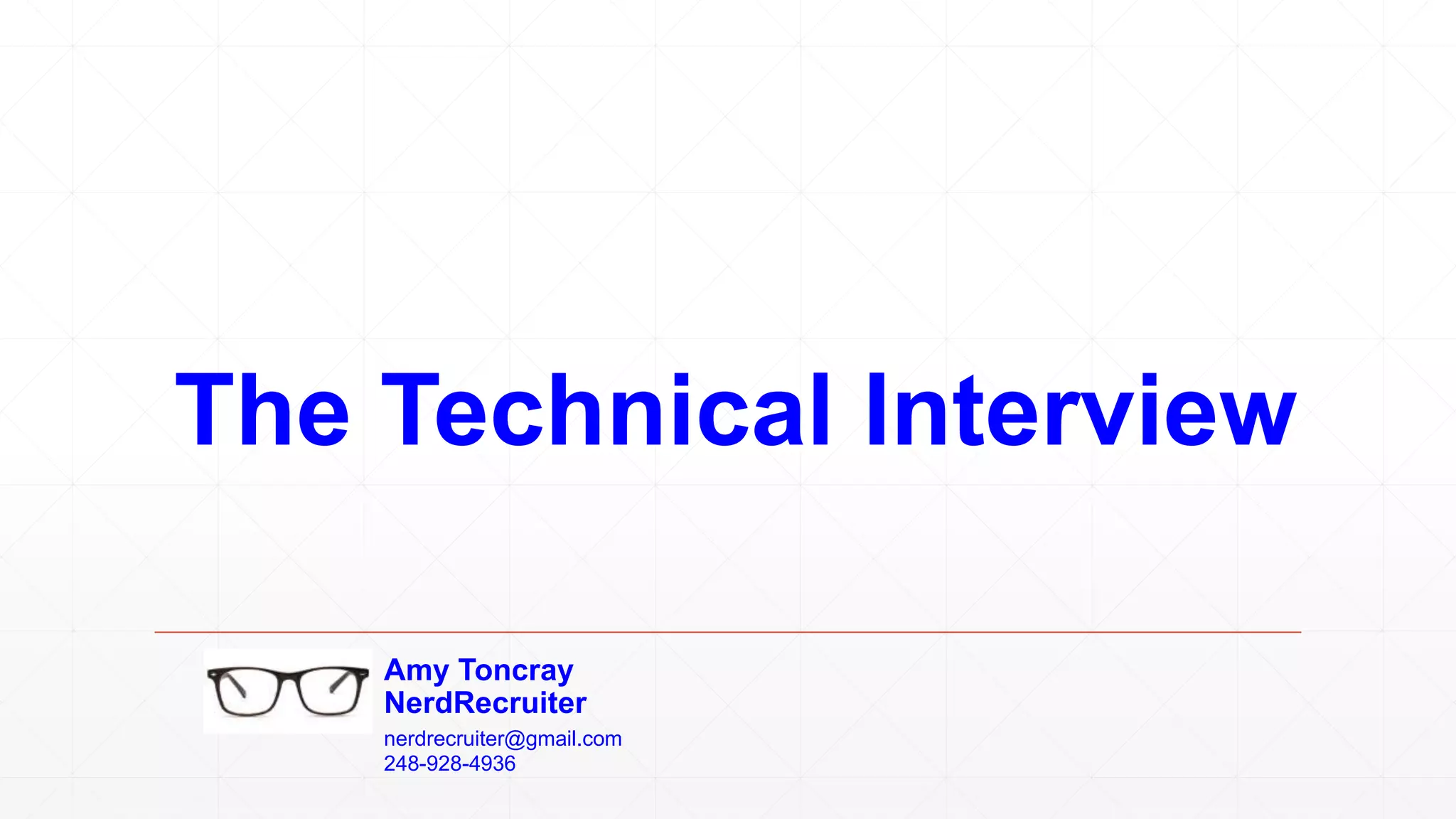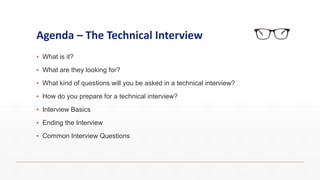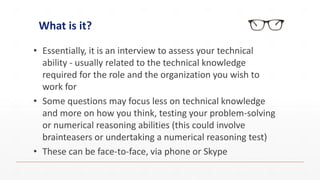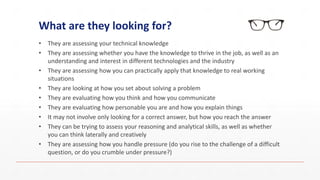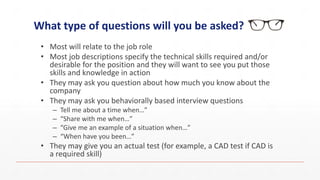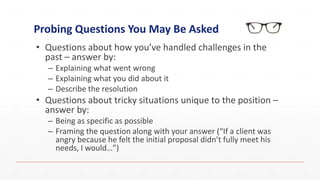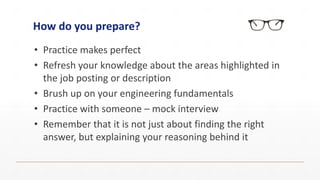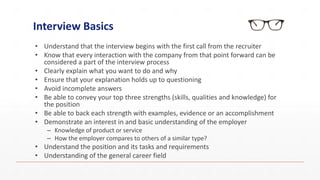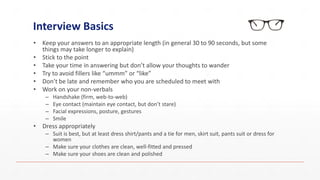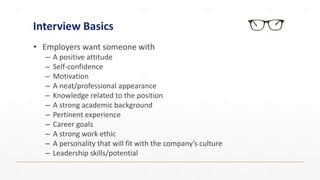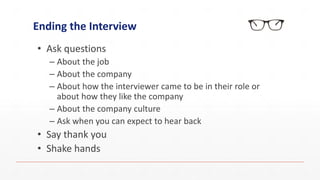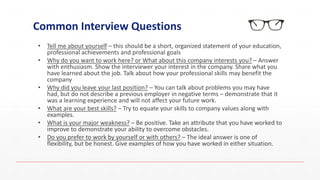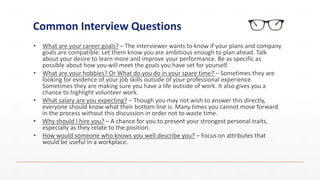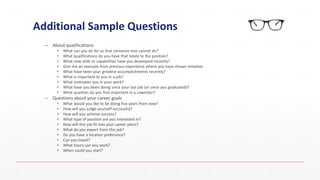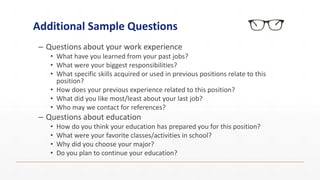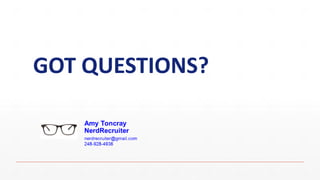The document provides guidance on preparing for and participating in a technical interview. It discusses what a technical interview is, what the interviewer is looking to assess, common types of questions that may be asked, and tips for how to prepare and conduct yourself. Some key points include:
- A technical interview assesses an applicant's technical knowledge, problem-solving, and ability to apply skills to working situations.
- Interviewers look to evaluate technical competency, communication skills, analytical abilities, and how one handles pressure.
- Applicants should refresh knowledge of required skills, practice explaining their thinking, and be prepared for both behavioral and technical questions.
- Proper preparation, presenting strengths with examples, maintaining professionalism
